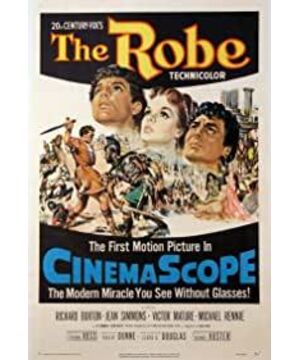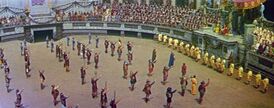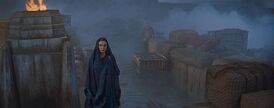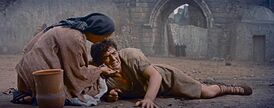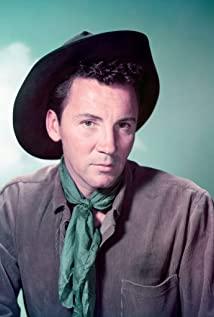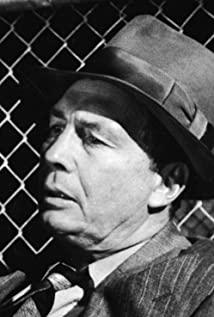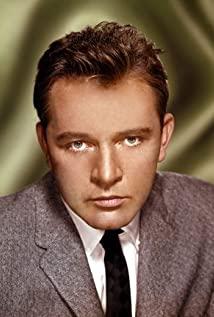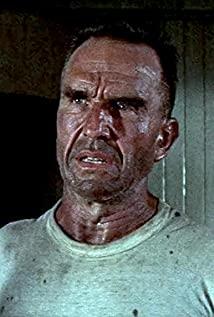Burton is an important part of the history of 20th Century Fox. A British stage actor who broke into Hollywood at the age of 26. In 1953, with "The Holy Robe" and wide-screen film innovation, he saved the crumbling old Hollywood movie empire that was severely hit by TV; and in 1962 because of "Egypt" 20th Century Fox nearly went bankrupt after the "Queen Actress" and Taylor scandals, and was sued by Zanuck for $55 million at one point.
But he unexpectedly set off the last wave of the Hollywood superstar era and became a leading figure in Hollywood in the 1960s. He was the lifesaver of Old Hollywood, bringing back the big studio system that should have collapsed in the 1950s, and lived to 70 years.
The following is an excerpt from Graham's memoir, about Burton, a young man who had just arrived in Hollywood in 52 years, but remained sober and cynical in the face of a rotten life, and his experience behind the "Holy Robe". "Go to hell with all the sycophants."
Wherever he went, there were people waiting to tell him what an actor he was. That might be encouraging, if people who call themselves Ritchie admirers actually see his performance work.
But all they do, as Rich knows all too well, is to respond to a signal from the studio's publicist. Their bosses have decided to tie Richard Burton with Marlon Brando as rising stars. May God bless those who want to argue.
Ritchie told me, "Their flattery of me is nasty and nasty. I'm so great, great, great. It's like a new wine, Brando and Burton, if you've been in the city too long, sure will get drunk."
...
Less than halfway through the filming of "Desert Rat," Ritchie nailed his third film. The Holy Robe is a biblical blockbuster, his most important film to date.
But more dangerous than Ritchie's acting reputation is that, like other Hollywood studios, Fox faces competition from television.
Between 1946 and 1951, the United States closed 5,000 movie theaters while the box office fell by nearly half, as did the United Kingdom. Dirty critics have pointed out that the film industry on both sides of the Atlantic is only afloat because popcorn in one country sells well and ice cream in another.
Movies need new ideas to breathe life into life. But rather than thinking about new creative ideas, narrow-minded financiers focus on quality and instead focus on technical tricks to save on investment.
At first it was a 3D movie. The audience can feel that they are in the scene of the movie. But to experience the three-dimensional effect, you have to wear tinted glasses, which is a hindrance and a nuisance once the novelty wears off.
The next gimmick to shock the public was the movie projector. Innovators argue that there has never been any rule that a movie screen has to be square. So why not widen the field of view and allow the viewer's eye to scan the panorama, which is completely impossible on TV.
The idea was picked up, but the board was going through a lot of pain before picking scripts and stars to launch a counterattack against TV. Considering the decent centrist audience, which has been a movie-going stalwart of the past, the choice fell on a simple religious fable that has already made millions for bookstores.
Lloyd Douglas's "The Holy Robe" is the story of Marcellus. He executed Jesus by crucifying him, but he himself became a martyr and defender of Rome after converting to Christianity.
To play Marcellus, you need an actor who has a strong romantic image, but who can't be out of touch with the religious epic. Young American heroes with dynamic styles like Errol Flynn and John Wayne are not encouraged to audition.
Richard Burton, on the other hand, may have been tailor-made for the role. He has a romantic appeal, which is undeniable. One critic said he gave him a "crude sensuality" that made him credible as a Roman soldier caught between duty and conscience, at war between heaven and man.
His acting experience is also in his favor. From the bewildered young lover in Broken Heart, to the troubled Prince Howl, to the brave desert rat, his work combines star quality with serious purpose.
It's not really a feature of his career, but it's one of his strongest cards right now. He did everything he could to play his card, which is worth nearly $1 million in today's currency. Henry Coster of "Brokenhearted", who is also the director of "The Holy Robe", is a strong supporter of Ritchie. Still, the proposal took a long time to come out. Several possible contenders, including Tyrone Bower and Lawrence Oliver, raised their voices, but were rejected.
Daryl Zanuck is skeptical that a relative newcomer to the film industry, with only two Hollywood roles so far, he is capable of leading the industry's recovery.
It is understandable that large sums of money are at great risk. 20th Century Fox is risking not only its $5 million production budget, but also the millions of additional dollars it would take to convert movie theaters into movie projectors. If the wide screen went the old way of 3D, Hollywood might fall apart, leaving only abandoned studios.
When Ritchie finally signed on to play Marcellus, he was described by the mighty Louis Parsons as "Hollywood's hottest character." Columnists followed with more bombastic praise for the Welsh wonder boy.
Richie has another group of admirers who are more powerful than any media and lobby group. For these self-appointed moralists, such a grand religious film is the equivalent of a second miracle.
Ritchie didn't welcome their attention. First of all, he doesn't like having an intimate relationship with them. After all, he's acting in a movie about Christ, restricted by stupid censorship laws that can't portray Jesus as a real person, and any attempt to add realism to the plot is suspect.
"I was told, 'When you're confused, look to heaven and look with devotion,'" Rich said. "I felt nauseous a few times."
...
When they first started filming "Sacred Robes", no one knew what was going to happen next, they just hoped for the best and kept worrying about failing.
After the production executives saw the first dailies, there were complaints that Ritchie was too rigid, a criticism that was detrimental to his film career, and that there wasn't enough action in the film.
Rich is understandably nervous, knowing that his future depends on how audiences react to the film. Seeking consolation, he used the party invitation to approach Skulas, the Greek-American president of Twentieth Century Fox and the main initiator of the widescreen film.
"What would you do if "Sacred Robes" is not good?" Rich asked.
Skulas is thoughtful. After thinking for a while, he yelled, "We'll tie your thumb with a rope and hang you!"
...
In fact, Richie didn't know the fate of Hollywood's "most ambitious big production in the 14 years since Gone with the Wind" until he returned to London.
Critics in the tabloids liked the film and liked Richard Burton; critics in the heavyweight newspapers liked Richard Burton but not the film.
"Time" commented: "The piety is more important than the wisdom, and the spectacle is more important than the humanity. However, the excellent cast led by Richard Burton makes this show outstanding."
The ob-server praised Ritchie for "trying to put a real character into a religious film", adding, "If his attempt wasn't a huge success, it wasn't the actor's fault, he's already played well. already."
To everyone's delight, studio bosses are more at home reading box office numbers than media reviews.
The popularity of The Robes is undeniable, thanks in part to the innovative film projector, which was generally well-received, giving the film a novelty value.
But Richard Burton is the star that audiences most want to see. During the 135 minutes of playtime, he barely left the screen. It was calculated that Ritchie accounted for 313 of the 700 speeches throughout the film. The video is of Burton, Jane Simmons, and Zanuck presenting the award during the filming of "Holy Robes" https://video.weibo.com/show?fid=1034:4585029162958865
View more about The Robe reviews


